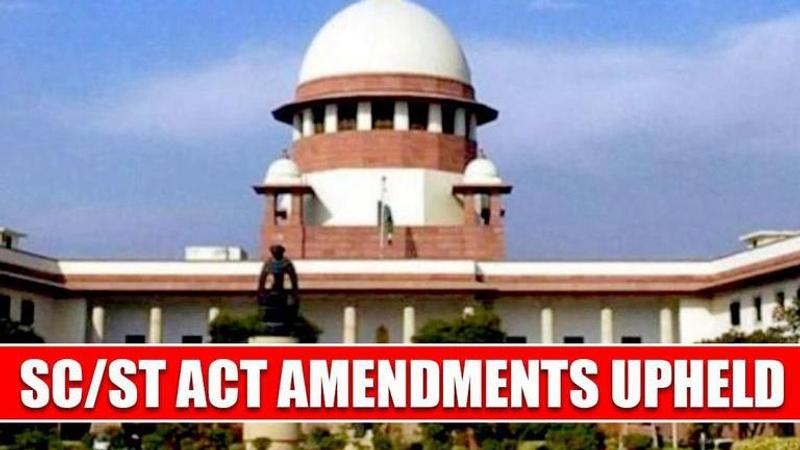Published 11:35 IST, February 10th 2020
Supreme Court upholds the constitutional validity of SC/ST Amendment Act of 2018
Declaring a significant judgement, a three-judge bench on Monday upheld the constitutional validity of amendments made to SC/ ST Act in 2018.

Declaring a significant judgement on Monday, a bench comprising of Justices Arun Mishra, Vineet Saran and Ravindra Bhat upheld the constitutional validity of Scheduled Castes and the Scheduled Tribes (Prevention of Atrocities) Act of 2018. Dismissing the pleas that challenged the act as ultra vires, the Supreme Court stated that provisions related to anticipatory bail to be exercised sparingly and in exceptional cases with no prima facie. The Parliament had passed the bill overturning apex court's March 20, 2018 judgement that diluted the law.
What was the 2018 verdict?
The Supreme Court bench of Justices AK Goel and UU Lalit ruled on March 20, 2018 that the arrest of an accused under the Scheduled Castes and Scheduled Tribes (Prevention of Atrocities) Act should be made after preliminary enquiry. The bench had taken note of the rampant misuse of the stringent SC/ST Act against government servants and private individuals and said that there would be no immediate arrest on any complaint filed under the law. Terming it as the dilution of the SC/ST Act, violent protests had taken place across the country after the verdict in which 9 people lost their lives and several were injured. The Parliament had then passed the bill to overturn the apex court judgement concerning certain safeguards against arrest under the SC/ST law.
What was the amendment made by the Parliament?
The Parliament passed the Scheduled Castes and the Scheduled Tribes (Prevention of Atrocities), Amendment Bill, on August 9, 2018. The bill inserted a new section 18A and ruled out any provision for anticipatory bail for a person accused of atrocities against SC/STs, notwithstanding any court order. It provided that no preliminary inquiry will be required for registering a criminal case and an arrest under this law would not be subject to any approval. The legislation also provided that no preliminary enquiry will be required for registering a criminal case and an arrest under this law would not be subject to any approval.
Updated 11:36 IST, February 10th 2020




